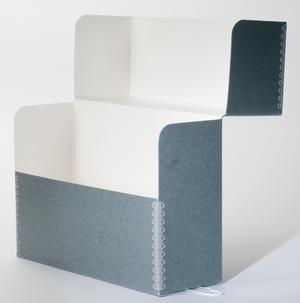- Contact Us
- Emergency Information
- Facility Rental
- Jobs
- Site Map
- Site Policies
- Web Accessibility
- Web Privacy
- © Harry Ransom Center 2025

SIGNATURES
Identified individuals are represented by a biographical sketch, a list of connections to other signatures, and, in most cases, an artifact from the Ransom Centers collections. Help us identify more signatures by submitting your suggested identification.
X
X
THE DOOR
 Location on door: front, panel 3
Location on door: front, panel 3
EDWARD ROYCE
The English-born theater director James Edward Royce (1870-1964) was a prominent figure in commercial theater in New York in the late 1910s and 1920s. Before that time, he was employed for several years by the London playwright and producer Seymour Hicks. A 1920 article about stage directors in the New York magazine Theatre included Royce in a list of the most accomplished at the craft, stating that "it is a safe conjecture that the names of most of these important individuals are entirely unknown as far as the theatergoer is concerned, with the possible exception of David Belasco and George M. Cohan, whose fame, from the public standpoint, is not entirely associated with their reputation as actual stage directors." Royce was known for his near-perfect coordination of the Ziefeld Follies; in 1922, the critic Heywood Broun, bemoaning the Follies's shift from "production" to "institution," imagined a nostalgic return to early days of the Follies: "It will be produced not by Edward Royce, but by spontaneous combustion. Some of it will be terrible. Few of the costumes will fit and many of them will be in bad taste."

A contact sheet of photographs from a production of the Ziegfeld "Midnight Frolic," 1920
Fannie Brice and W. C. Fields headlined the 1920 Frolic revue, which contained this act imagining the famous Ziegfeld Girls as horseracing jockeys. Frolic shows were held in the "Ziegfeld Roof," the upstairs venue at the New Amsterdam Theatre in Times Square. The Midnight Frolic series ended after the 1921 season due to dropping attendance. The shrinking audience was due in part to the arrival of Prohibition, which changed the nature of the late-night events.

